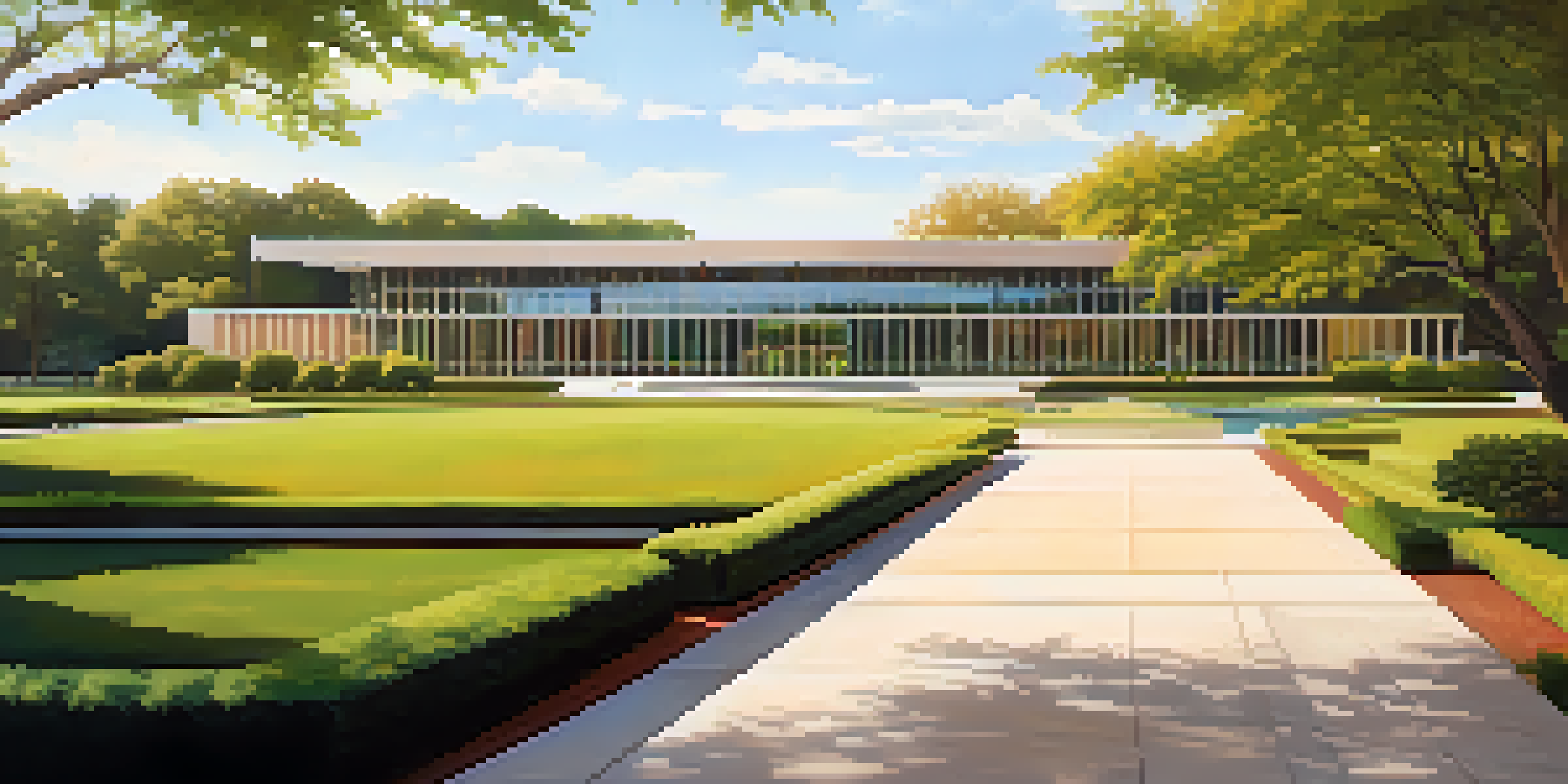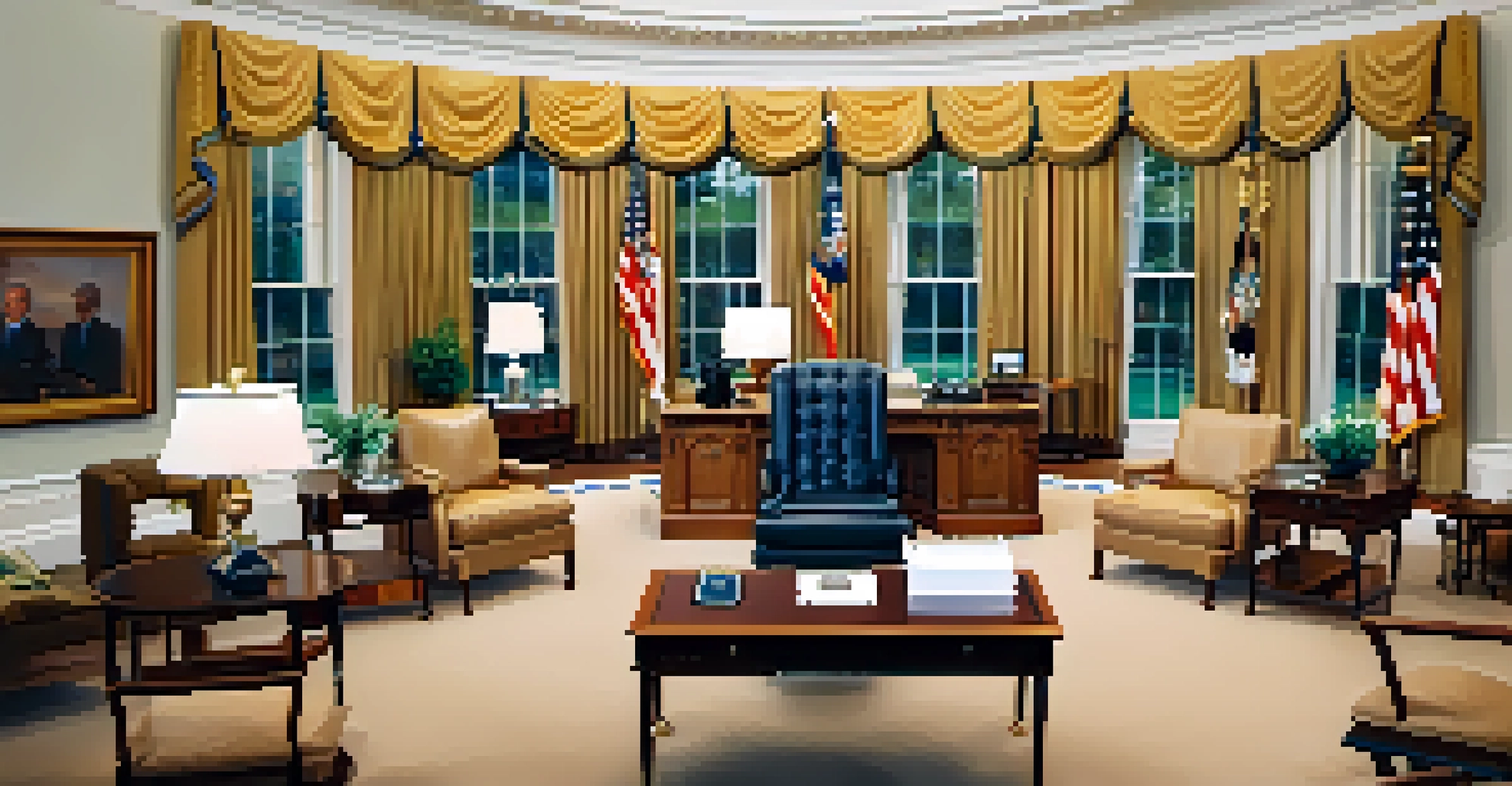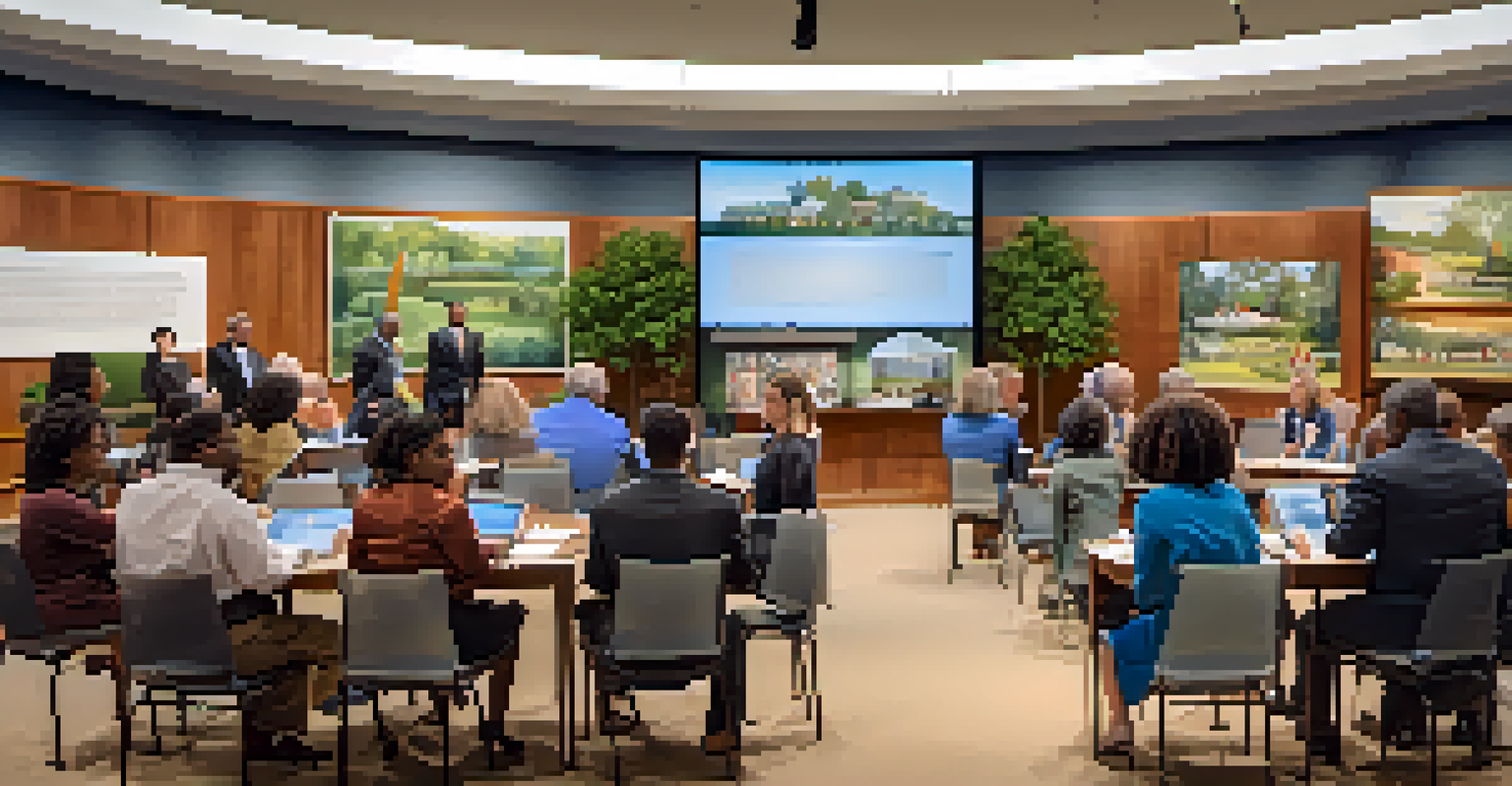Jimmy Carter Presidential Library: A Historical Landmark

Introduction to the Jimmy Carter Presidential Library
The Jimmy Carter Presidential Library, located in Atlanta, Georgia, is more than just a building; it's a tribute to the 39th President of the United States. Opened in 1986, the library serves as a repository for Carter's papers and memorabilia, offering a glimpse into his life and presidency. Visitors can explore an array of historical documents, photographs, and interactive exhibits that highlight pivotal moments in American history.
We must adjust to changing times and still hold to unchanging principles.
Carter's presidency, which spanned from 1977 to 1981, was marked by significant events such as the Camp David Accords and the Iran Hostage Crisis. The library not only preserves these moments but also educates the public about the challenges and triumphs of his administration. By visiting, guests can gain a deeper understanding of the political landscape of the late 20th century.
The library is also a serene space, surrounded by beautiful gardens and a tranquil atmosphere. This setting invites visitors to reflect on Carter's legacy of peace and diplomacy, making it a fitting location for such an important institution.
Architectural Design and Features of the Library
The architectural design of the Jimmy Carter Presidential Library is as noteworthy as its content. The building, designed by architect David B. McKinney, features a modernist style that harmonizes with its natural surroundings. Its clean lines and large glass windows create an inviting space that encourages exploration and learning.

Inside, the library boasts various exhibition areas that house artifacts from Carter's life, including his Nobel Peace Prize. A unique feature is the replica of the Oval Office, which allows visitors to step back in time and experience the presidential office as it was during Carter's term. This immersive approach makes history feel accessible and relatable.
A Tribute to Jimmy Carter's Legacy
The Jimmy Carter Presidential Library showcases the life and presidency of the 39th President, highlighting key historical moments and his commitment to peace.
Additionally, the library incorporates sustainable design elements, reflecting Carter's commitment to environmental preservation. With features like energy-efficient systems and landscaping that promotes local flora, the library stands as a model for modern public buildings.
The Role of the Library in Preserving History
Presidential libraries play a crucial role in preserving history, and the Jimmy Carter Presidential Library is no exception. It serves as an archive for documents, audio, and video recordings related to Carter's presidency. This wealth of resources is invaluable for researchers, historians, and students seeking insights into this era of American history.
The bond of our common humanity is stronger than the divisiveness of our fears and prejudices.
Moreover, the library offers public programs, workshops, and lectures that engage the community and promote historical literacy. By hosting events that celebrate Carter's contributions to peace and human rights, the library fosters a greater understanding of the values he championed. This engagement helps to keep his legacy alive for future generations.
The library's commitment to education extends beyond its walls, as it collaborates with schools and organizations to provide resources and materials for teaching. This vital outreach ensures that the lessons from Carter's presidency continue to resonate with audiences of all ages.
Exhibits and Collections: A Deeper Dive
One of the highlights of the Jimmy Carter Presidential Library is its diverse collection of exhibits. Visitors can explore a variety of themes, from Carter's early life in Plains, Georgia, to his post-presidential humanitarian work. These exhibits are thoughtfully curated to provide a comprehensive view of his contributions to American society.
Interactive displays allow guests to engage with history in meaningful ways. For example, visitors can listen to oral histories from people who worked with Carter or participated in significant events during his presidency. This personal touch adds depth to the experience and helps to humanize historical figures.
Engaging Exhibits and Programs
Visitors can explore interactive exhibits and participate in educational programs that bring history to life and promote community engagement.
Additionally, the library frequently updates its exhibits to reflect current events and ongoing research. This dynamic approach ensures that there's always something new to discover, making each visit a unique opportunity to learn about Carter's enduring impact.
Events and Programs at the Library
The Jimmy Carter Presidential Library is not just a static museum; it actively engages the public through a variety of events and programs. From lectures featuring prominent historians to film screenings that explore pivotal moments in history, there's always something happening at the library. These events encourage dialogue and foster a community of lifelong learners.
Another popular program is the library's educational outreach, which provides resources for teachers and students. Workshops and curriculum guides help educators incorporate the library's materials into their classrooms, making history more accessible and relevant. This commitment to education reflects Carter's belief in the importance of informed citizenship.
Seasonal events, such as holiday celebrations or special exhibitions, further enhance the library's role as a community hub. These gatherings not only celebrate Carter’s legacy but also bring together individuals from diverse backgrounds, fostering a sense of connection and shared history.
Visiting the Jimmy Carter Presidential Library
Planning a visit to the Jimmy Carter Presidential Library is straightforward and rewarding. Located in the heart of Atlanta, the library is easily accessible by car or public transportation. Visitors can explore the library’s website for information on hours, admission fees, and special events to ensure a fulfilling experience.
Once inside, guests will find a welcoming atmosphere with knowledgeable staff ready to assist. A well-designed visitor center provides orientation and resources to maximize the experience. Whether you’re a history buff or a casual visitor, there’s something to engage everyone.
Preserving History for Future Generations
The library not only archives important documents but also collaborates with schools to ensure that lessons from Carter's presidency resonate with audiences of all ages.
The library also features a gift shop and café, offering a chance to take home a piece of history or enjoy a meal while reflecting on what you've learned. This thoughtful inclusion makes the visit not just educational but also enjoyable, ensuring that your time at the library is memorable.
The Legacy of Jimmy Carter: Beyond the Library
Jimmy Carter's influence extends far beyond his time in office, and the library plays a vital role in preserving that legacy. His post-presidential work in human rights, global health, and diplomacy has earned him respect worldwide. The library serves as a testament to his ongoing commitment to these causes, showcasing his efforts long after leaving the White House.
Through initiatives like the Carter Center, which focuses on improving global health and promoting democracy, Carter's impact continues to be felt. The library highlights these endeavors, illustrating how one person's dedication can lead to significant change in the world. It inspires visitors to consider their own potential for making a difference.

By emphasizing the importance of service and compassion, the library not only honors Carter's legacy but also encourages future generations to carry on his work. The lessons learned from his life and presidency offer a blueprint for leadership rooted in empathy and understanding.